The London artist, whose songs include Rehab and Tears Dry On Their Own, had struggled with addiction and bulimia throughout her music career.
Now, with Sam Taylor-Johnson at the helm, her life and love of music has been made into its own film titled Back To Black.
The director, who lived in the same neighbourhood as the iconic singer, says she wanted to ensure the film was from Winehouse’s perspective.
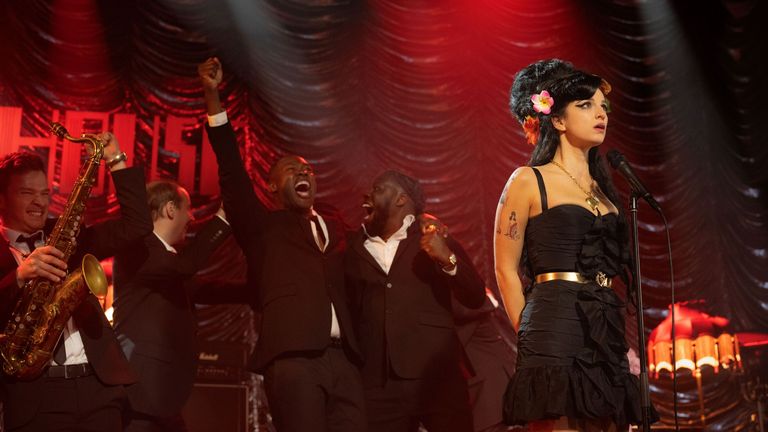
Sam Taylor-Johnson wanted to show Winehouse’s perspective. Pic: StudioCanal
Using journals, songs and writings from the late artist, she and screenwriter Matt Greenhalgh created the biopic from her own words.
“That felt like the best way to give her back her voice in a way,” she tells Sky News at the world premiere of Back To Black in London.
Marisa Abela portrays Amy Winehouse in the biopic. The 27-year-old British actress says she felt like Amy’s “life had been so picked apart that it was hard to sort of feel anything but the tragedy”.
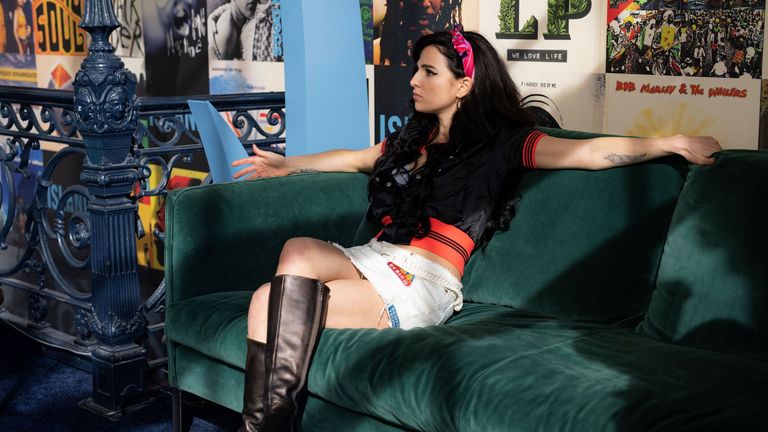
Marisa Abela said Winehouse’s legacy ‘is one of authenticity’. Pic: StudioCanal
She says it was important to her, the cast and crew that the film shone a light on the talents of the London artist.
“Her legacy is one of authenticity and heart fullness. She embodies her feelings, she wears them on her sleeve but not everyone can do it like her.”
The film depicts the singer-songwriter being hounded constantly by paparazzi.
The late singer’s ex-husband, Blake Fielder-Civil, is played by This Is England actor Jack O’Connell.
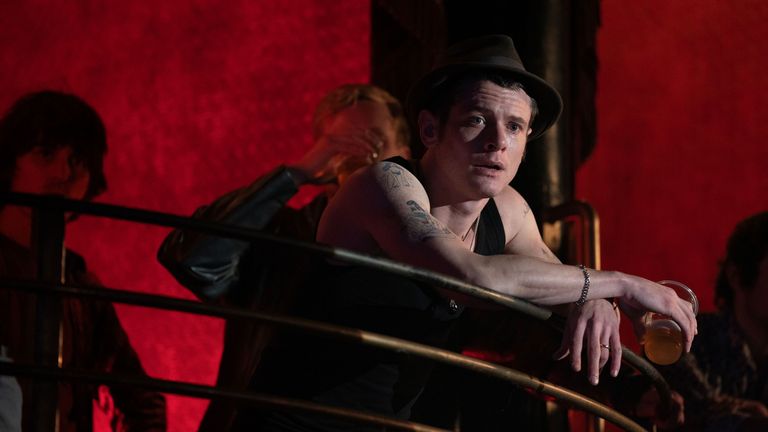
Amy’s ex-husband Blake Fielder-Civil is played by Jack O’Connell. Pic: StudioCanal
He says he wanted to make sure there was “a lot of depth” to his portrayal of Winehouse’s former partner who had often been linked with the harsher stories of the musician in tabloid press.
“It was definitely a persona put out there of him,” the actor explains.
He says: “At that level of success she had, when you have paparazzi contributing to that [her addiction], it’s a bad recipe and it’s heartbreaking… it’s definitely an antagonist in the movie.”
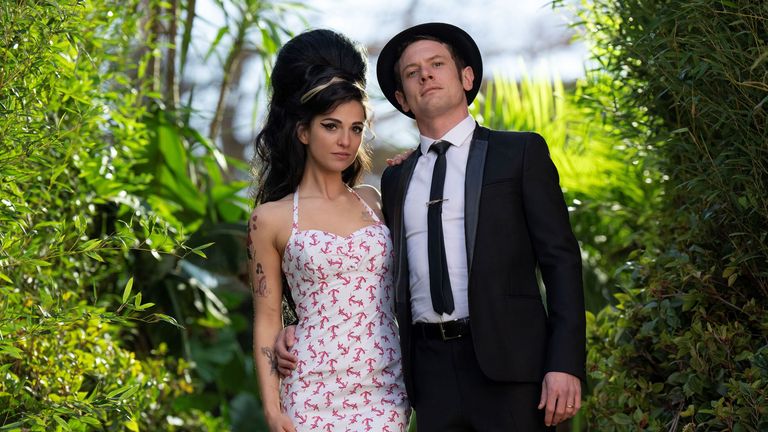
Jack O’Connell says addiction ‘ is present throughout’. Pic: StudioCanal
Back To Black doesn’t shy away from the inclusion of the couple’s run-in with addiction – which O’Connell calls “a definite evil that is present throughout”.
Happy-Go-Lucky actor Eddie Marsan, who plays Mitch Winehouse in the film, says her death was “a collective trauma” for the world but for her dad, it was the loss of a daughter.
“This film has the courage to show that the main villain of this piece is addiction,” he tells Sky News.
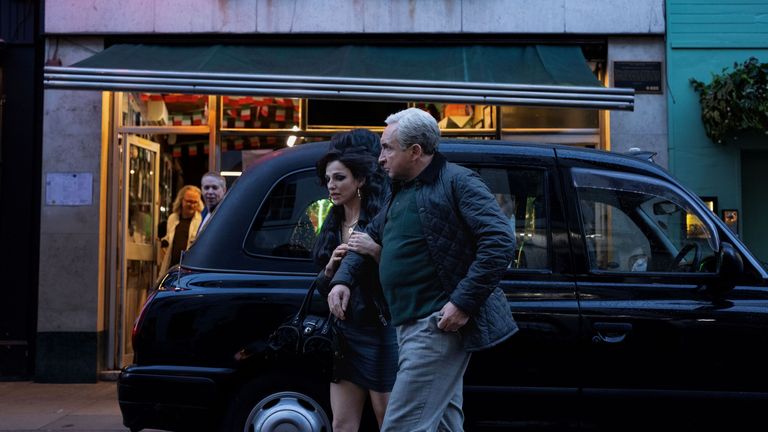
Eddie Marsan plays Winehouse’s father. Pic: StudioCanal
Marsan adds that there are certain safeguards that should have been in place at the time for celebrities like Amy Winehouse, who struggled with sobriety.
“There’s a reason why recovery programmes are called Alcoholics Anonymous and Narcotics Anonymous, because you need anonymity and privacy to deal with your addiction. And Amy was never afforded that.
“She was hounded in the middle of her addiction. So that made it twice as hard, wrote 100 times harder for the family to say. But they did nine interventions and they still couldn’t save her.”
Amy Winehouse’s music spread beyond the UK. In 2008, she won five Grammy Awards including Best New Artist, Song of the Year and Best Pop Vocal Album.





